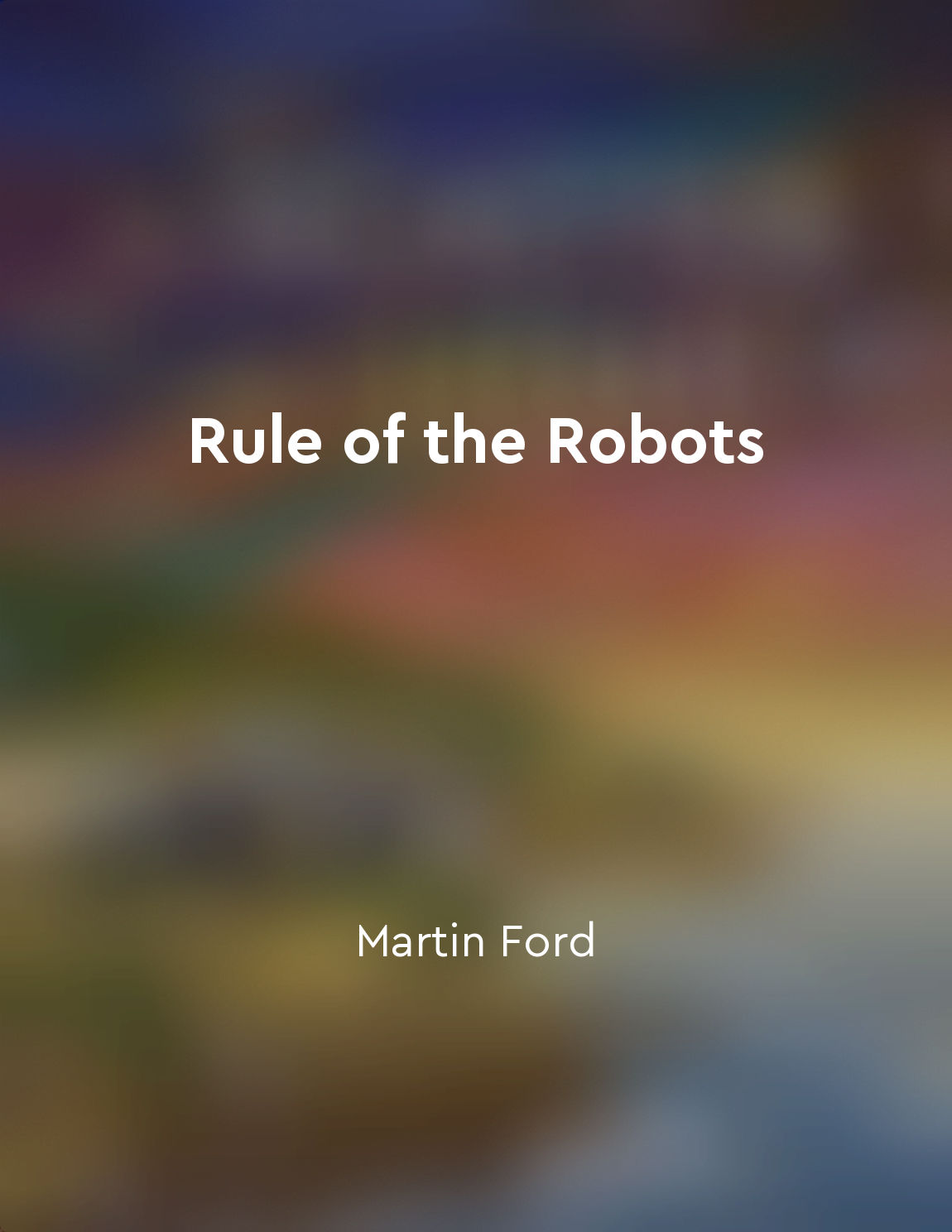Automation can lead to loss of skills from "summary" of The Glass Cage by Nicholas Carr
The march of automation through the workplace and beyond has long been regarded as a boon to human progress. Machines, it's assumed, can perform tasks more quickly, accurately, and efficiently than people can. But as automation becomes more sophisticated and pervasive, its downsides are becoming increasingly apparent. One of the most troubling is the potential for a loss of skills among the humans who rely on automated systems to do their work for them. When we offload tasks to machines, we free ourselves from the tedium and drudgery of those tasks, but we also relinquish the opportunity to develop and maintain the skills required to perform them. Over time, our abilities can atrophy and our knowledge can fade. We become dependent on the very systems that were meant to liberate us, and we find ourselves ill-equipped to cope when those systems fail or are unavailable. The more we rely on automation, the more vulnerable we become to its shortcomings. The problem is compounded by the fact that automation tends to make tasks easier to perform, reducing the need for human intervention and oversight. As a result, we may find ourselves engaging less with the work we do, relying on automated systems to handle the details while we focus on higher-level decision-making. While this can be a welcome relief in the short term, it can have long-term consequences for our skills and abilities. If we're not actively engaged in the tasks we perform, we're less likely to develop the expertise and judgment that come from experience. Moreover, automation can lead to a loss of what psychologist Mihaly Csikszentmihalyi calls "flow," the state of intense focus and concentration that comes from fully immersing oneself in a challenging task. When we hand off tasks to machines, we rob ourselves of the opportunity to experience flow and the sense of accomplishment that comes from mastering difficult tasks. We may become bored and disengaged, leading to a further erosion of our skills and motivation. In short, while automation offers many benefits, it also carries risks. By relying too heavily on automated systems, we may find ourselves losing the skills and abilities that make us uniquely human. To avoid this fate, we must strike a balance between automation and human endeavor, ensuring that we remain actively engaged in the tasks we perform and continue to develop and hone our skills. Only then can we reap the full benefits of automation without sacrificing our own capabilities in the process.Similar Posts
Mental health and wellbeing are essential for productivity
In a world obsessed with work and productivity, it is easy to overlook the importance of mental health and wellbeing. However, ...
Automation can reduce the need for creative problemsolving
Automation can indeed reduce the need for creative problem-solving. When tasks are automated, there is less room for human inte...

The ethical implications of automation must be considered
As we hurtle towards a future dominated by automation and artificial intelligence, it is imperative that we pause to consider t...

Robots and automation are replacing human workers in many industries
In the modern economy, we are witnessing a significant transformation driven by the rapid advancement of technology. The rise o...

Embracing technology while preserving human dignity is a delicate balance
In a world where technology is advancing at an unprecedented pace, the question of how to integrate these new innovations while...
Artificial intelligence is revolutionizing decisionmaking processes
Artificial intelligence has brought about a fundamental shift in how decisions are made across various industries. Traditional ...
Globalization impacts education
Globalization has fundamentally altered the landscape of education in today's world. As the world becomes increasingly intercon...
Embracing change is crucial
As we navigate through the rapidly evolving landscape of the Second Machine Age, one thing becomes abundantly clear - change is...
Ensuring fairness in automated systems is critical
The idea that automated systems should be fair is not a new one. It has been discussed and debated by philosophers, ethicists, ...

Necessity of redefining social mobility
In today's rapidly changing world, the traditional notion of social mobility is no longer sufficient to accurately capture the ...
